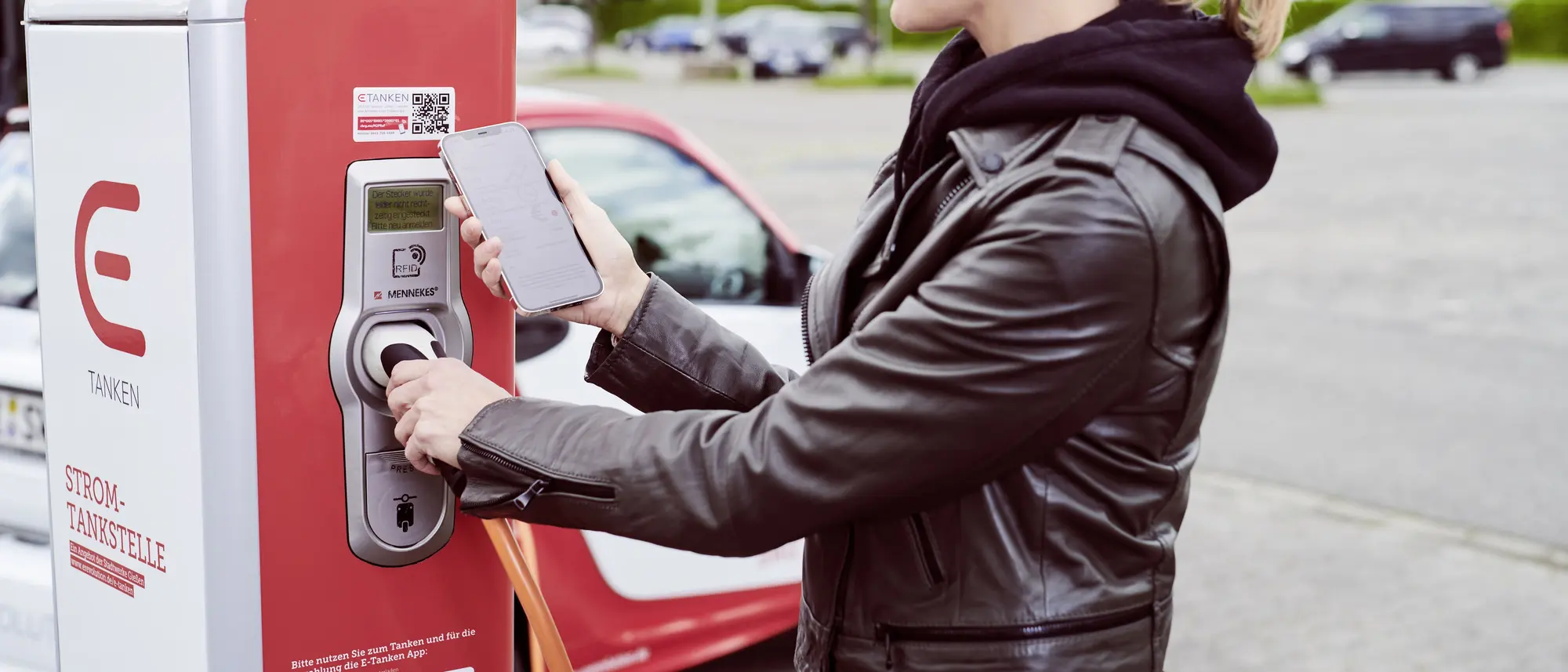Worth knowing
The faster your electric car charges, the faster you can drive it again. A wallbox gives you a significant time advantage and offers a high level of safety - in addition to many other plus points. With your own wallbox at home, you save yourself the trip to the petrol station. Once you arrive home, you can charge your electric car in one go.
A conventional socket is not designed to run hot for several hours with a charging power of 3.7 kW. In the worst case scenario, this can lead to a cable fire. So it's better to play it safe and invest in a suitable wallbox. All you need to do is plug it in - and your car will charge safely and conveniently day after day.
How quickly an electric car charges depends primarily on its battery and charging capacity. The charging capacity of the vehicle, but also that of the charging facility. A standard household socket can only deliver 3.7 kilowatts - with a modern electric car with a battery capacity of 40 kilowatt hours, you can expect a long 11-hour wait. A wallbox, whose technology enables safe charging with a high charging capacity, provides a remedy here.
Worth knowing
Charging in public spaces still involves a small amount of planning. The key question is: where can I charge my electric car and how does the billing work?
Ad-hoc charging is mandatory at all public charging stations. This means that every e-mobilist must be able to use the charging station without any prior commitment to the operator. This often involves scanning a QR code at the respective charging point, which guides the driver through an online menu in which they enter their credit card details or agree to other payment methods (e.g. PayPal).
If you regularly use public charging infrastructure, it makes sense to register with a charging station operator. With so many providers and tariffs, it is not easy to find a suitable operator.
It is important to know how much time you spend per month at which public charging station and approximately how much you charge, as each electricity provider offers a different billing system. The prices are often calculated on the basis of three factors:
- Time: Some providers charge based on how long you have your electric car plugged into the respective charging station. It should be noted that not only the charging time is charged, but the entire time that your electric car is connected to the public charging station.
- Charging quantity: Some providers charge the charging quantity, i.e. the kWh that your electric car charges.
- Basic or initial fee: In addition to the charging time or charging quantity, an additional monthly basic fee or an initial fee per charging process may apply, depending on the provider. This always applies, regardless of the charging quantity and time.
Depending on the charging type, different tariff models also have different advantages.
